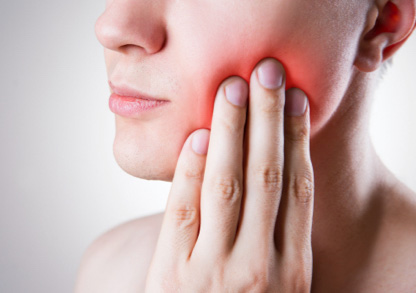Your smile, your body: How eating disorders affect oral health

About 9% of Americans, or nearly 29 million people, will have an eating disorder within their lifetime, according to the National Association of Anorexia Nervosa and Associated Disorders. These life-threatening conditions have serious consequences for oral health as well as overall wellness.
What are eating disorders?
Eating disorders are illnesses characterized by preoccupations with food and weight.
- Anorexia is when a person severely limits his or her food intake. People with anorexia have a distorted body image and an extreme fear of gaining weight.
- Bulimia involves cycles of bingeing and purging. A person with bulimia will eat compulsively (bingeing) and then get rid of the food (purging) by intentionally vomiting, exercising or taking laxatives.
- Binge-eating is when a person goes through periods of compulsive eating, followed by guilt or depression, but does not purge.
Eating disorders are most common among young women ages 15 to 25, but they can also affect men and boys, as well as young children and older adults.
Oral symptoms of eating disorders
Anorexia and bulimia can cause serious harm to the mouth.
The stomach acid from vomiting damages teeth and oral tissues. Symptoms of bulimia may include:
- Worn and translucent teeth
- Sensitive teeth
- Frequent cavities or root canals
- Cracked lips
- Dry mouth
- Inflamed salivary glands
- Difficulty swallowing
Many people with anorexia and bulimia suffer from nutritional deficiency. Even without vomiting, a lack of essential vitamins, minerals and fluids can cause these oral health problems:
- Inflamed and bleeding gums
- Bone loss in the jaw
- Frequent cavities or root canals
- Frequent canker sores
- Dry mouth
- Bad breath

How dentists can help
If you have an eating disorder, consider talking to your dentist. Your dentist can be a strong ally in your recovery and offer help protecting your teeth. He or she may recommend fluoride treatments or high-strength fluoride gel. Fluoride can strengthen tooth enamel, which is especially important if you’ve experienced tooth erosion or frequent cavities.
Xylitol can also help prevent dry mouth and cavities. Your dentist may suggest toothpastes, gums or mints containing this sugar substitute.
If you are struggling with purging, your dentist may offer you a mouthguard to minimize the effects of stomach acid on your teeth.
Don't be afraid to seek help
If you or someone you know suffers from an eating disorder, it’s not too late to get help. Turn to a professional for treatment and support. Your dentist may also be able to refer you to a therapist who specializes in eating disorders, or help you start a conversation with your physician.
Last updated January 14, 2022
Related articles:
The oral health information on this website is intended for educational purposes only. Always consult a licensed dentist or other qualified health care professional for any questions concerning your oral health.


